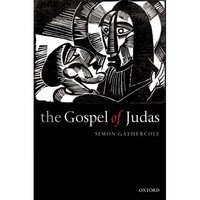 There are number of upcoming events that you may want to be aware of. First, on September 8, 2012 Simon Gathercole will present a lecture on the nature of the apocryphal Gospels in comparison with the canonical Gospels at the Lanier Theological Library. There's an extensive reading list for the event.
There are number of upcoming events that you may want to be aware of. First, on September 8, 2012 Simon Gathercole will present a lecture on the nature of the apocryphal Gospels in comparison with the canonical Gospels at the Lanier Theological Library. There's an extensive reading list for the event.- Jesus and the Eyewitnesses: The Gospel as Eyewitness Testimony. By Richard Bauckham (Grand Rapids: Eerdmans, 2006). Bauckham's thesis is that the Gospel narratives are based on eyewitness testimony, and should be considered much earlier and stable than critical scholars have assumed. Besides literary and historical evidence to the eyewitness testimony, Bauckham treats memory, oral transmission, and the role of testimony in ancient historiography.
- Dethroning Jesus: Exposing Popular Culture's Quest to Unseat the Biblical Christ. By Darrell L. Bock and Daniel B. Wallace (Nashville: Thomas Nelson, 2007). Bock and Wallace investigate significant claims that are made in the larger academic community that separate what they call 'Jesusanity' from Christianity. Bock and Wallace do a great job responding to the these attempts to separate the Christ of faith from the Jesus of history and address the Baur's thesis that Christianity involved several alternative Christianities and evolved into orthodox
- The Gospel of Judas: Rewriting Early Christianity. By Simon Gathercole (Oxford: OUP, 2007). I just picked up Gathercole's work. It looks like a more detailed study of the Gospel of Thomas with a chapter including a translation and commentary. Gathercole addresses the message of the Gospel, but within the context of the discussion of the alternative Christianities model that we discussed above.
- Who Chose the Gospels? Probing the Great Gospel Conspiracy. By C. E. Hill (Oxford: OUP, 2010). Again, I was just made aware of Hill's work through the conference and just picked it up. Hill investigates the early church traditions on the canonicity of the four canonical Gospels and the history surrounding the determination of the four Gospels.
The last time that I visited the event page, it looked like it was filling up. I would recommend reserving your space as soon as you can.
Second, Grace Reformed Baptist Church is hosting Dan Wallace on September 14-15, 2012 as a part of the 2012 John Bunyan Theology and Church History Conference. Dan will be discussing the reliability of the New Testament.
It looks like Dan will be a part of a larger conference in Dallas at Watermark Community Church on September 29, 2012. Other speakers will be William Lane Craig, Greg Koukl, John Stonestreet, Frank Turek, Todd Wagner, and Ravi Zacharias.